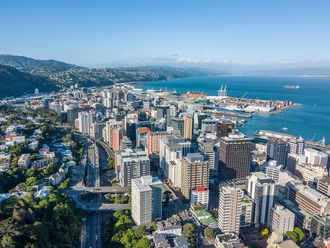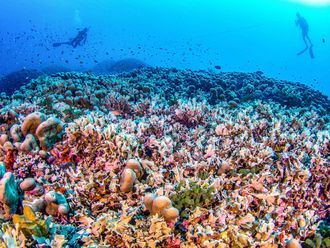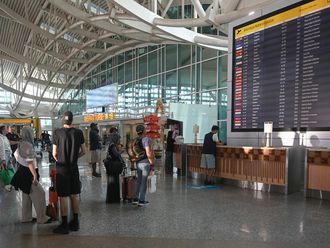Tokyo: Beijing-baiting Tokyo governor Shintaro Ishihara, whose bid to buy disputed islands ignited a smouldering row between Japan and China, resigned on Thursday to start his own national political party.
The outspoken Ishihara, 80, who has run one of the world’s biggest cities for more than 13 years, said Japan’s pacificist post-war constitution was “ugly” and needed to be reframed.
“As of today, I will resign as Tokyo governor,” Ishihara told a news conference, in an announcement that took Japan’s political and media establishment by surprise.
“I’m planning to return to national politics. I want to do so by forming a new party with my associates.”
Newspaper reports earlier on Thursday had said Ishihara wanted to forge a new grouping big enough to rival the two largest established parties ahead of an expected general election.
But they had made no mention of his stepping down from a role he has made his own.
Ishihara, who was elected for a fourth four-year term as Tokyo governor in the weeks after last year’s huge tsunami, said he saw much wrong with national politics.
“There are several contradictions, big contradictions, which we hope the state itself will solve,” he told reporters.
“One contradiction, bigger than anything, is the Japanese constitution, which was imposed by the (post World War II US) occupying army, and is rendered in ugly Japanese.”
Like many on the right of politics, novelist-turned-politician Ishihara objects, among other things, to Article 9 of the constitution, which bars Japan from waging war.
Ishihara, an irascible presence on the national political scene for decades, will co-opt members of the tiny right-wing Sunrise Party for his new venture, the daily Yomiuri Shimbun reported.
He will also seek to join hands with the bullish mayor of Osaka, Toru Hashimoto, a straight-talking maverick whose recently formed Japan Restoration Party is aiming to seize control of the powerful lower house.
The move comes after months of tensions between Tokyo and Beijing over the sovereignty of a group of islands in the East China Sea, which flared up again after Ishihara said he wanted to buy them for his metropolitan government.
Nationalists from both sides staged island landings before Prime Minister Yoshihiko Noda stepped in to outbid Ishihara, who had amassed well over one billion yen ($12.8 million) in public donations towards the cost.
The government completed its purchase of three of the five islands in the chain - it already owned the fourth and leases the fifth - on September 11.
Ministers have said the move to nationalise the islands was an attempt to maintain the status quo and avoid an escalation in the dispute, with many of the view that a purchase by Ishihara would be inflammatory.
But Beijing reacted furiously and tens of thousands of protesters poured onto the streets in cities across China, some vandalising Japanese business outlets.
Japan’s exports to China, its biggest trading partner, tumbled 14.1 percent last month, partly because demand dropped for Japan-branded products including industrial machinery and cars.
On Thursday, four Chinese government ships entered waters around the islands, Japan’s coastguard said.












